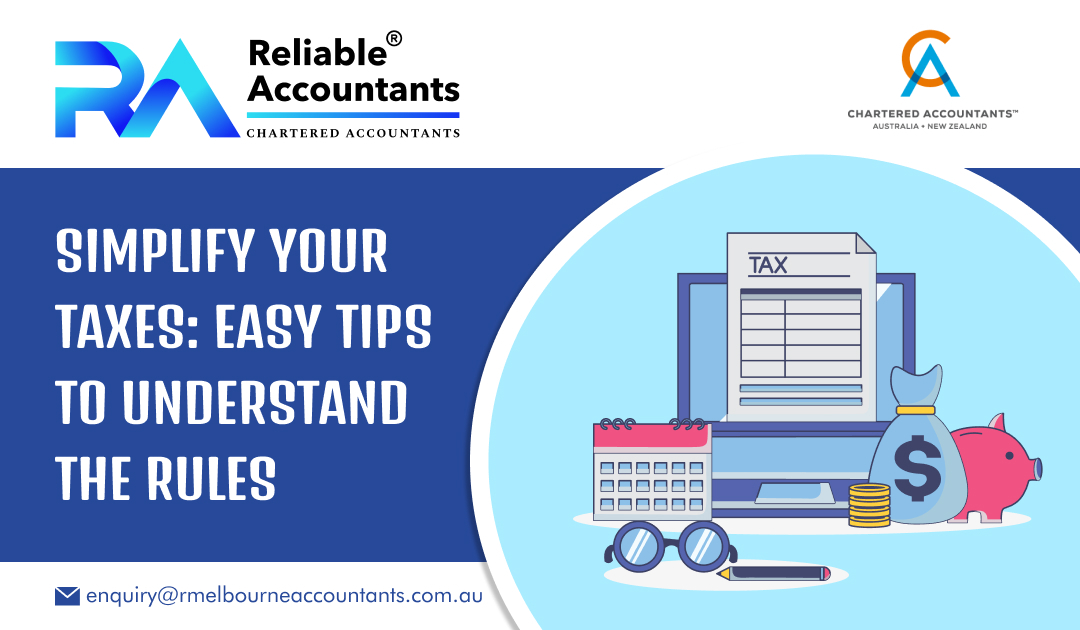If you are new to Australia or English is your second language, this blog post will help you learn about tips and rules to simplify taxes. In this blog, you will get answers to the most common questions regarding taxes.
Why Do You Need to Pay Tax?
As Australians, you would love to access quality education for a better future, a good health system, and several community facilities (for instance, playgrounds and parks) that are managed and supported with tax collections. For the tax filing process for your business, you can consider finding a tax accountant near you by searching online for an ‘accountant for a small business near me’.
The Australian Taxation Office (ATO) collects these taxes to provide several services, which include:
- Healthcare
- Education
- Defence
- Payments for welfare, pensions, and disaster relief
- Road and railways
Things to Know Before You Start Working in Australia
You need to consider several things before you start working in Australia, such as:
- Permission to work in Australia: If you are a foreign resident, you must get permission to work in Australia from the Department of Home Affairs. Home Affairs will provide you with information about visas that allow you to work in Australia.
- Obtain a tax file number: Your tax file number, also known as TFN, is your personal reference number, which can be received for free. You must get a TFN before you start working or soon after starting your work in Australia, otherwise, you will be liable to pay more tax. The ATO will issue TFNs to businesses, individuals, and other organisations for identification and record-keeping. Your circumstances will be considered when you apply for your TFN. You need valid documents to prove your identity when completing your application. The application process can take up to 28 days, and you will receive your TFN at your address. Keep your TFN safe, and don’t let anyone else use it.
- Australian Business Number (ABN) is for business: Not everyone needs to obtain an ABN to work in Australia. Obtaining an ABN means you:
- are running your business
- have to pay taxes to the ATO
- may have to pay for your super
- may not be insured in case you are injured.
What Information Do You Need to Know About Your Tax Return?
You must know the following information about your tax return, or you may know it through your tax accountant. If you don’t have an accountant yet, you can search online for ‘tax accountant near me’.
- Who must prepare a tax return? As an individual entity, you are liable to file a tax return if:
- If you had tax deducted from your pay during the tax year (1 July to 30 June)
- Your taxable income (including some Australian Government payments) was over certain thresholds for residents.
- You are a foreign resident and earned $1 or more in Australia during the tax year (excluding income that had non-resident withholding tax withheld).
- You are leaving Australia permanently or for more than one tax year.
- The ATO uses information from your tax return, such as your income and the amount of tax you have paid, to work out if you need to pay extra tax or if you’ll get a refund.
What Information Do You Need to Keep to Lodge a Tax Return
Before lodging your tax return, you’ll need to know a few things:
- how much you have earned from your job (including cash payments) and any interest on bank accounts or investments
- how much tax your employer has withheld from your pay and sent to the ATO
- about any deductions and tax offsets you’re eligible for.
You must have a record of everything to claim potential tax deductions, and a Melbourne bookkeeper can help you with record-keeping. Deductions are expenses you can claim to reduce your tax. These are usually work-related costs, such as money spent on tools or workwear. To claim these, you’ll need to show:
- you paid for the expenses yourself and weren’t reimbursed
- the expenses are directly related to earning your income
- you have a record of the expenses (like a receipt).
Your employer should give you an income statement or payment summary that shows how much you earned and how much tax you paid.
Conclusion
Navigating Australia’s tax system can be simpler than it seems with the right knowledge. Make sure you have your Tax File Number (TFN) or Australian Business Number (ABN) ready, keep track of your earnings and expenses, and know what deductions you can claim. If you are unsure, seeking help from Reliable Melbourne Accountants can make the process smoother.

